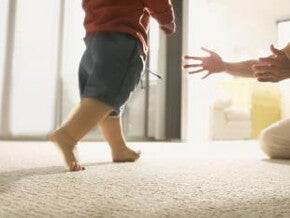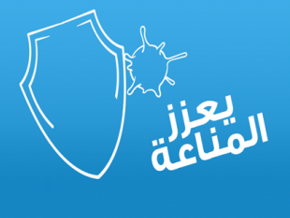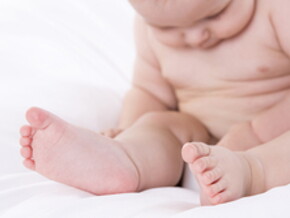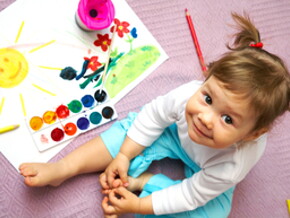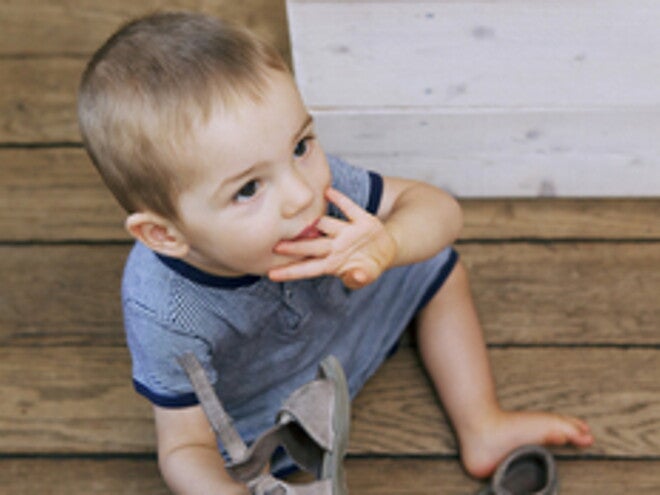
Why Children Bite Their Nails And How To Stop Them?
Nail Biting In Kids: Causes And Remedies
IMPORTANT NOTICE: The World Health Organization (WHO) recommends exclusive breastfeeding for the first 6 months and continued breastfeeding for as long as possible. Growing up milks are formulated to meet nutrition needs of healthy young children older than 1 year and should not be fed to infants.
Nail biting is a very common habit among young children, as it is among older ones. But, what are the causes and reasons behind this bad habit and what is the perfect way to deal with it?
Sometimes, it can be hard to understand the real reason behind a child’s nail biting, as this type of habits is either the consequence of several issues like boredom, stress, anxiety, curiosity and routine change, or a simple pattern that has no background.
So if your child starts to bite his nails unexpectedly and without a prior notice, you have to think about what is going on in his life: did he join the nursery recently? Did he start to attend special classes? Is there something stressful in the house, like the arrival of a new baby or the adoption of a pet? Observe him very closely and try to see if his habit is situational, which means that it doesn’t show unless in specific situations and conditions, like watching TV or sitting in the car seat.
Knowing the exact causes behind your kid’s nail biting might be hard due to his limited way of expression at this age, but you will find out eventually. And if you don’t, it’s possible that the biting is only a tendency, just like hair playing, nose picking, hair chewing, thumb sucking and teeth grinding.
Once you determine your child’s reasons behind nail biting and before you punish or reprimand him. Remember that he’s maybe doing his move without knowing it. In that case, punishing him or talking to him in a harsh way every time he tries to bite his nails won’t make a difference, yet will make things worse. At this point, you better leave him alone for some time. Perhaps he will let go of his habit by himself.
But, if you notice that nail biting is negatively affecting your child’s life, keeping him from playing or eating, and taking much of his time, then you will have to interfere and help him get rid of his habit. To tell you the truth, your task won’t be that easy, and hereby are the steps that will help you out:
- Deal with the events or things that put your child under stress, and help him get rid of his negative feelings by means other than nail biting, such as physical activities (including playing ball and dancing on fast music rhythms) or quiet activities (e.g. drawing and storytelling)
- Create a secret code (that no one knows but you and your kid) and use it to remind your little one calmly and without embarrassment that he should stop biting his nails.
- Offer your child an object, a toy or a doll to hold in his hands and play with, so it will shift his attention from nail biting.
- Make sure that your child’s nails are always trimmed and short; because short nails may tire him and make him feel bored.
- If your child is a toddler girl, choose her favorite color and put it on her nails as a manicure. In that way, you will reminder her that she doesn’t have to put her nails in her mouth and bite them.
- Give your child a nail alternative, like sugar-free popsicles for example.
- Try to cover your child’s fingers and nails in particular with colorful band aids that have beautiful and interesting prints. Band aids can work as a barrier between your toddler’s mouth and nails, and may prevent him from biting them.
- Reward your child for every effort he makes in order to stop his habit. Reward and encouragement for positive behaviors may be more stimulating than any other method.
If your child continues to bite his nails despite all the above mentioned trials, methods and tricks, we advise you to resort to bitter solutions that you can put on his nails to disgust him and prevent him from putting them in his mouth. But, be careful, some of these solutions are not suitable for toddlers as they might contain cayenne pepper which causes a burning sensation by direct contact with the tongue, eyes or lips.
Read More: Tips On How To Teach Children Good Behavior



